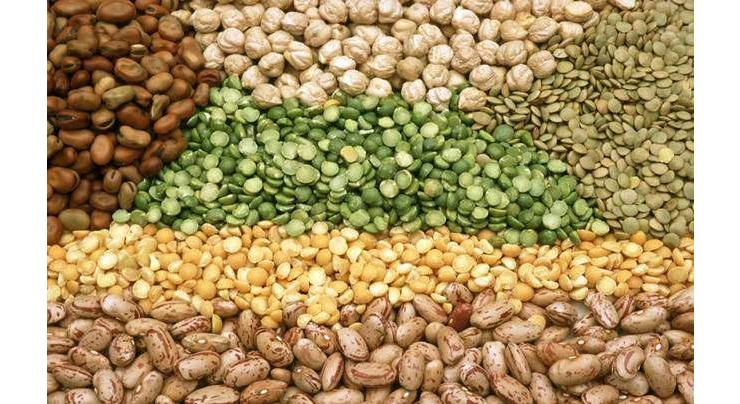
World Pulses Day To Be Marked On Feb 10
Umer Jamshaid Published February 06, 2020 | 04:17 PM

Like other parts of the globe World Pulses Day will be marked on Feb 10 across the globe including Pakistan to raise awareness about the benefits of pulses like chickpeas, dry beans, lentils and dry peas for people and for the planet
ISLAMABAD, (UrduPoint / Pakistan Point News - 6th Feb, 2020 ) :Like other parts of the globe World Pulses Day will be marked on Feb 10 across the globe including Pakistan to raise awareness about the benefits of pulses like chickpeas, dry beans, lentils and dry peas for people and for the planet.
Pulses Sustainable food for a sustainable future World Pulses Day is a designated United Nations global event to recognize the importance of pulses (chickpeas, dry beans, lentils, dry peas and lupins among others) as a global food. It has been proclaimed on February 10 of each year since 2019 by the General Assembly of the United Nations on December 20, 2018.
This celebration is a recognition of the decisive role that pulses can play in achieving the comprehensive, far-reaching and people-centred set of universal and transformative goals and targets of the United Nations' 2030 Agenda for Sustainable Development, a plan of action that seeks to strengthen universal peace.
Pulses, also known as legumes, are the edible seeds of leguminous plants cultivated for food. Dried beans, lentils and peas are the most commonly known and consumed types of pulses.
Staples dishes and cuisines from across the world feature pulses, from hummus in the Mediterranean (chick peas), to a traditional full English breakfast (baked navy beans) to Indian dal (peas or lentils).
Pulses do not include crops that are harvested green (e.g. green peas, green beans) these are classified as vegetable crops. Also excluded are those crops used mainly for oil extraction (e.g. soybean and groundnuts) and leguminous crops that are used exclusively for sowing purposes (e.g. seeds of clover and alfalfa).
They are packed with nutrients and have a high protein content, making them an ideal source of protein particularly in regions where meat and dairy are not physically or economically accessible. Pulses are low in fat and rich in soluble fiber, which can lower cholesterol and help in the control of blood sugar. Because of these qualities they are recommended by health organizations for the management of non-communicable diseases like diabetes and heart conditions. Pulses have also been shown to help combat obesity.
Related Topics
Recent Stories

Pakistan requesting multi-billion-dollar loan programme from IMF: Finance Minist ..

Passing out parade of cadets at PMA Kakul

Govt bringing reforms in energy, revenue collection, SOEs: Aurangzeb

Pakistan, New Zealand to face off in 2nd T20I match at Rawalpindi today

Currency Rate In Pakistan - Dollar, Euro, Pound, Riyal Rates On 20 April 2024

Today Gold Rate in Pakistan 20 April 2024

Tennis: ATP Barcelona Open results - 1st update

Swiatek's perfect 10 in Stuttgart as Vondrousova stuns Sabalenka

Arandu's roads closed due to flooding

Oil tanker catches fire in Islamabad’s Blue Area

Pakistan committed to ensure safety of foreign nationals: FO

Tennis: WTA Stuttgart results - 1st update
More Stories From Pakistan
-
FO says listing of commercial entities on allegations takes place without sharing evidences
5 minutes ago -
LESCO detects 166 power pilferers in 24 hours
5 minutes ago -
LESCO collects over Rs 3.14m from 188 defaulters in 24 hours
5 minutes ago -
PCP Chairman, deputy Chairman Senate discuss matters pertaining to media codes of ethics
15 minutes ago -

Passing out parade of cadets at PMA Kakul
24 minutes ago -
Prompt action against drug peddlers, traffickers ordered
25 minutes ago
-
Khairpur Police recovers Heroin worth of Rs 200 millions
25 minutes ago -
11 passengers sustain injuries as bus overturns
35 minutes ago -
Transgender body recovered
45 minutes ago -
Iranian Ambassador discusses details of President's visit with Mohsin Naqvi
45 minutes ago -
Drug addict found dead
45 minutes ago -
Commissioner stresses quality education aligning with modern trends
55 minutes ago
